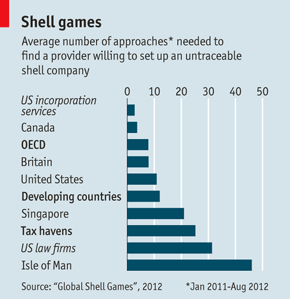If that headline sounds stupid, it’s only because it’s accurate:
Every day, it seems, we hear of yet another story of silly out-of-date regulations, which may have had a reasonable purpose initially, getting in the way of perfectly legitimate innovation. For example, there’s been a massive growth in “open courseware” or open education programs, that put various educational classes online for everyone to benefit. They’re not designed to replace the degrees of college, but rather to just help people learn. One of the biggest ones, Coursera, recently told people in Minnesota that they could no longer take Coursera classes, due to ridiculously outdated Minnesota regulations:
Notice for Minnesota Users:
Coursera has been informed by the Minnesota Office of Higher Education that under Minnesota Statutes (136A.61 to 136A.71), a university cannot offer online courses to Minnesota residents unless the university has received authorization from the State of Minnesota to do so. If you are a resident of Minnesota, you agree that either (1) you will not take courses on Coursera, or (2) for each class that you take, the majority of work you do for the class will be done from outside the State of Minnesota.
Update: In the first of what promises to be a cascade of Minnesota-education-related announcements, Popehat is forced to introduce new terms of service for Minnesota residents:
Now circumstances require us to create special terms of use for Minnesota residents. See, some of you have occasionally said that, despite our best efforts and lack of relevant skills or experience, you occasionally learn something at Popehat […] That’s problematical in Minnesota.
You’d think that Minnesota residents should be free to learn whatever they want from any site on the internet. You’d be wrong. The State of Minnesota determines not just what degrees may be offered there, but how its residents may learn things on the internet.
[. . .]
Now, I think it’s unlikely that Popehat would be treated as subject to the statute. We’re not a learning institution and we don’t offer “courses,” per se, except in the sense of “a course of abuse.” But we can’t be too careful. We’re talking about a state that thinks it should dictate whether web sites in other states can make free online content available to its citizens. Who knows what they’ll do next? I don’t want to subject Popehat to Minnesota’s onerous disclosure requirements or pay fees or be subject to injunctions if some functionary within the Minnesota Office of Higher Education decides that Popehat is attempting to offer courses in, say, Spammer Communications. I don’t want to have to go to Minnesota to defend myself. Lakes make me itchy. Plus, my lovely wife spent only a couple of years there in the 1970s and I still laugh at her accent, so I’m concerned that legal proceedings there may not go my way.
Update, 22 October: Minnesota belatedly realizes that beclowning yourselves in front of an international audience is sub-optimal:
Last week, we were among those who reported on a ridiculous attempt by regulators in Minnesota to enforce a regulation aimed at stopping degree mills, by telling various legitimate online learning providers like Coursera that Minnesota residents couldn’t take courses from without state approval. Thankfully, all of the attention has caused Minnesota officials to admit that this was silly and back down. According to Larry Pogemiller, director of the Minnesota Office of Higher Education:
Obviously, our office encourages lifelong learning and wants Minnesotans to take advantage of educational materials available on the Internet, particularly if they’re free. No Minnesotan should hesitate to take advantage of free, online offerings from Coursera.

 The international standard governing shells, set by the inter-governmental Financial Action Task Force (FATF), is clear-cut. It says countries should take all necessary measures to prevent their misuse, such as ensuring that accurate information on the real (or “beneficial”) owner is available to “competent authorities”. More than 180 countries have pledged to follow it. A study* scrutinises the level of compliance worldwide. The results are depressing.
The international standard governing shells, set by the inter-governmental Financial Action Task Force (FATF), is clear-cut. It says countries should take all necessary measures to prevent their misuse, such as ensuring that accurate information on the real (or “beneficial”) owner is available to “competent authorities”. More than 180 countries have pledged to follow it. A study* scrutinises the level of compliance worldwide. The results are depressing.

